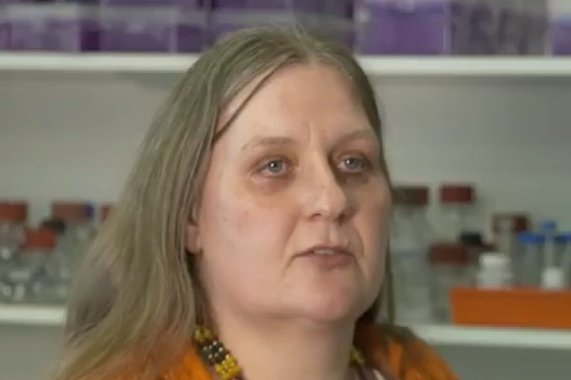Assoc. Prof.in Priv.-Doz.in Mag.a Dr.in Hedwig Sutterlüty
Gruppenleiterin
T: +43 (0)1 40160-57526
F: +43 (0)1 40160-957500
hedwig.sutterluety@meduniwien.ac.at
ORCID: 0000-0001-9249-9299
Forschungsschwerpunkt
Wir interessieren uns für drei große Themen:
- Molekulare Analyse von Signaltransduktionswegen, die an der Regulation von normalen und Tumorzellen beteiligt sind;
- Charakterisierung von Mechanismen, die an der intrazellulären Regulation der Zellproliferation beteiligt sind;
- Untersuchungen zur Rolle von Mikro-RNAs als wichtiger Modulator der Genexpression bei Krebs.
Ausgewählte Publikationen
MicroRNA-21 Increases Proliferation and Cisplatin Sensitivity of Osteosarcoma-Derived Cells
Vanas V, Haigl B, Stockhammer V, Sutterluty-Fall H.
PLoS One. 2016 Aug 11;11(8):e0161023. doi: 10.1371/journal.pone.0161023. eCollection 2016.
Differential Effects of Variations at Codon 106 on Sprouty2 Functions in Lung Cancer-Derived Cells
Kral R, Doriguzzi A, Mayer CE, Krenbek D, Setinek U, Sutterluty-Fall H.
J Cell Biochem. 2016 Aug;117(8):1822-32. doi: 10.1002/jcb.25482. Epub 2016 Jan 21.
The increased Sprouty4 expression in response to serum is transcriptionally
controlled by Specific protein 1
Doriguzzi A, Haigl B, Gsur A, Sutterlüty-Fall H.
Int J Biochem Cell Biol. 2015 Jul;64:220-8. doi: 10.1016/j.biocel.2015.04.017. Epub 2015 May 6.
Expression of microRNA-21 in non-small cell lung cancer tissue increases with disease progression and is likely caused by growth conditional changes during malignant transformation
Haigl B, Vanas V, Setinek U, Hegedus B, Gsur A, Sutterluty-Fall H.
Int J Oncol. 2014 Apr;44(4):1325-34. doi: 10.3892/ijo.2014.2272. Epub 2014 Jan 22.
Sprouty2 but not Sprouty4 is a potent inhibitor of cell proliferation and migration of osteosarcoma cells
Rathmanner N, Haigl B, Vanas V, Doriguzzi A, Gsur A, Sutterluty-Fall H.
FEBS Lett. 2013 Aug 19;587(16):2597-605. doi: 10.1016/j.febslet.2013.06.040. Epub 2013 Jul 4
Alle Publikationen
PubmedDatabase (Sutterluty)
PubmedDatabase (Sutterluty-Fall)
Vorstellung Hedwig Sutterlüty, Brigitte Marian (in Ruhestand)

Nach der Aktivierung werden Daten an YouTube übermittelt. Weitere Infos hier: Datenschutzerklärung
